Disney Kilimanjaro Safari Guide
posted by Laurel Connerty on February 27, 2020
//
7 Comments »
Are you considering the Disney World Kilimanjaro Safari at Animal Kingdom? Set in the African area of Animal Kingdom, the Disney Kilimanjaro Safari trek offers an experience that will delight both young and old visitors alike. The setting for Kilimanjaro Safaris is the Harambe Wildlife Reserve, and your journey through this slice of Africa will take you through open plains, cool forests, rock formations, and wetlands. We hope this Disney Kilimanjaro Safari Guide inspires you.
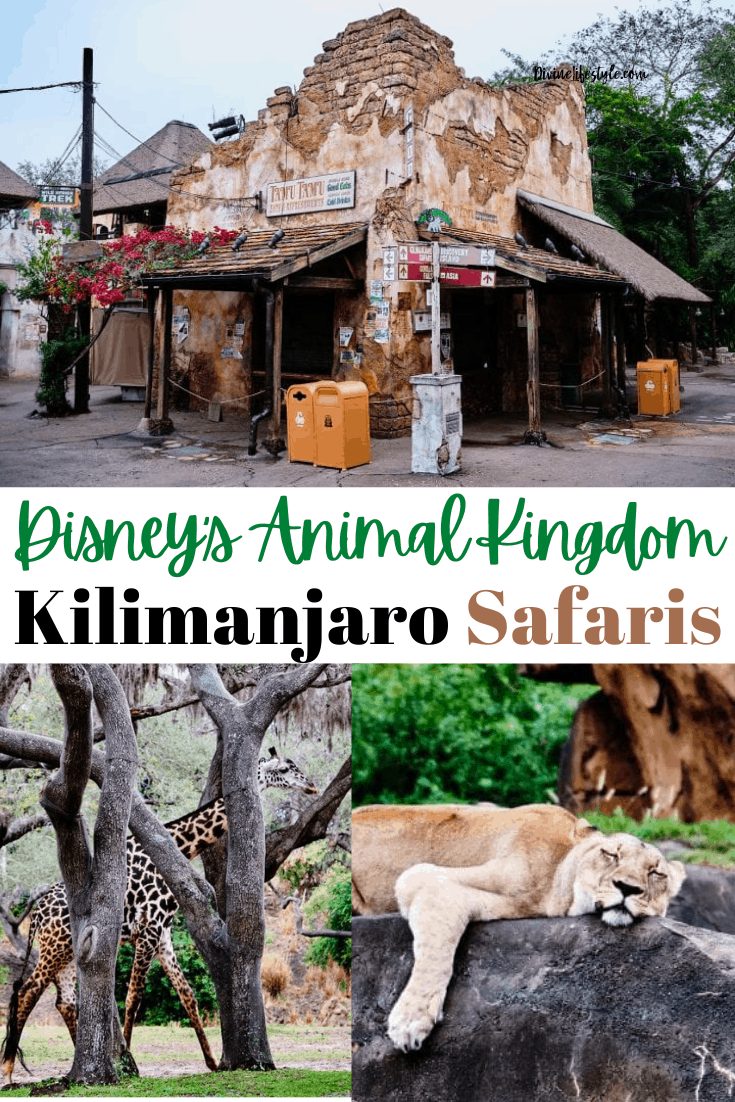
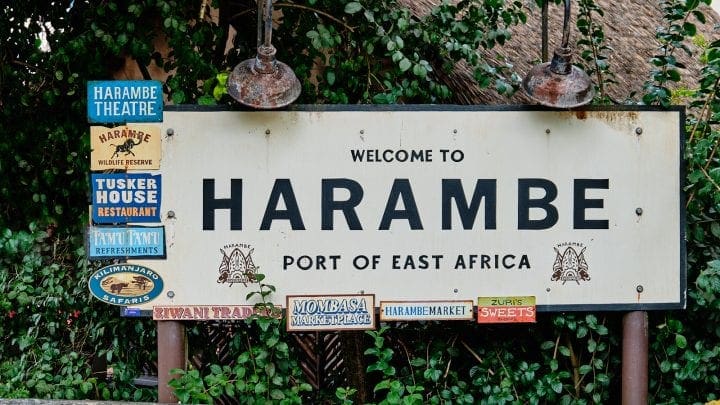
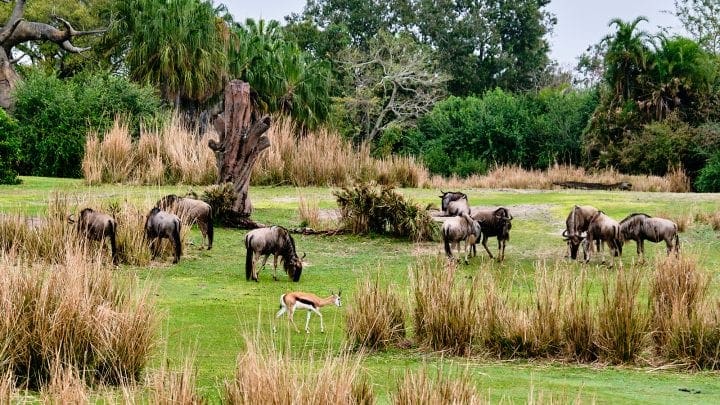
Disney Kilimanjaro Safari Guide
The Harambe Wildlife Reserve encompasses 110 acres, making this one area of Animal Kingdom larger than both the Disneyland and Magic Kingdom Parks. Your ride through the preserve in the custom open-air truck takes a little over twenty minutes, and during that time you will encounter 34 animal species. Be prepared for some of the animals to get quite close to the vehicle. During our recent trek, we had to stop three times as giraffe, rhino, and zebra approached and crossed in front of our vehicle. Have no fear though; the truly dangerous predators are not able to approach your truck.
Wild Animal Safari in Pine Mountain Georgia
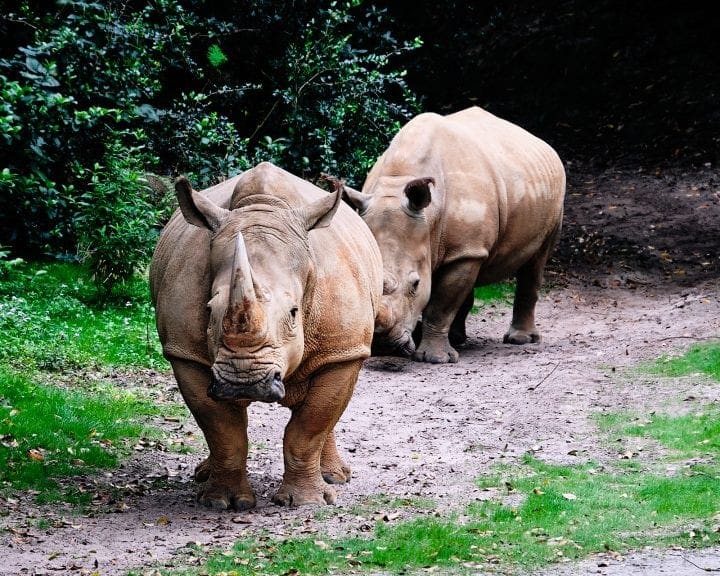
The Best Time to Ride Disney Kilimanjaro Safari
If your goal is to see as many active animals as possible while on your Kilimanjaro Safaris trek, you have three options; early morning, sunset, and after dark. These are the times when the animals are most active, with different animals up and roaming around in the early morning and after dark. During the cool morning, you will find active rhinos, giraffes, and zebra, while during the dark hours of night, big cats like the lion are on the prowl.

Disney Kilimanjaro Safari Guide
The park generally opens at 9 am, so if you want to catch the animals early head directly for the ride. If you are planning to catch the nocturnal creatures, check the daily park hours. Closing time varies, and you want to be sure to pick a day when the park is open late. You can take the Kilimanjaro Safari Trek during the mid-day hours as well, but the animals tend to be less active and hidden during this time thanks to the heat of the noonday sun. There is one advantage to the mid-day trek; the line to get on one of the safari trucks tends to be much shorter during this period.
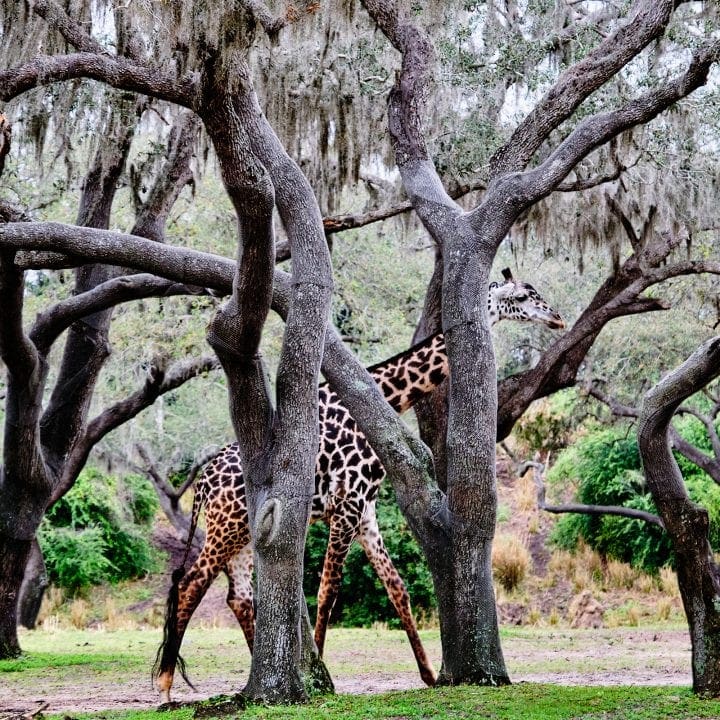
Zoo Atlanta's Twilight Trek, Visiting the Zoo After Hours
Photography Advice for the Kilimanjaro Safaris Trek
All of the photos appearing in this article were taken by yours truly during a morning excursion. For those who care, I was shooting the Fuji X-H1 body and I had that paired with the Fuji 18-135 zoom lens. While the 18-135 isn't the sharpest lens from Fuji, it is a great walking-around lens if you are trying to cut down on how much you have to carry. Judge for yourself on the sharpness of the lens; every picture here was taken with it.
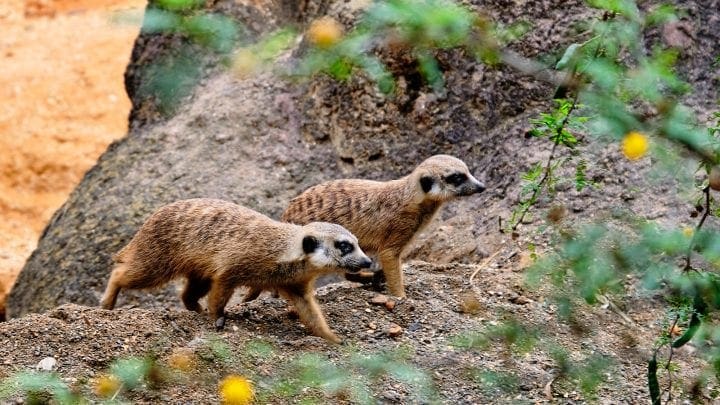
Don't Use Auto to Shoot
I would not recommend trying to use your camera's AUTO function while shooting pictures on the Kilimanjaro Safaris trek; you will most likely end up disappointed by blurry photos if you do that. Likewise, I would shy away from Aperture priority mode as well (unless you are planning on shooting with a low f/stop). The reason for this advice is this; you will be shooting from a moving, bouncing truck in light that varies wildly. Auto will often pick too slow of a shutter speed under those conditions, especially in poor or variable lightning.
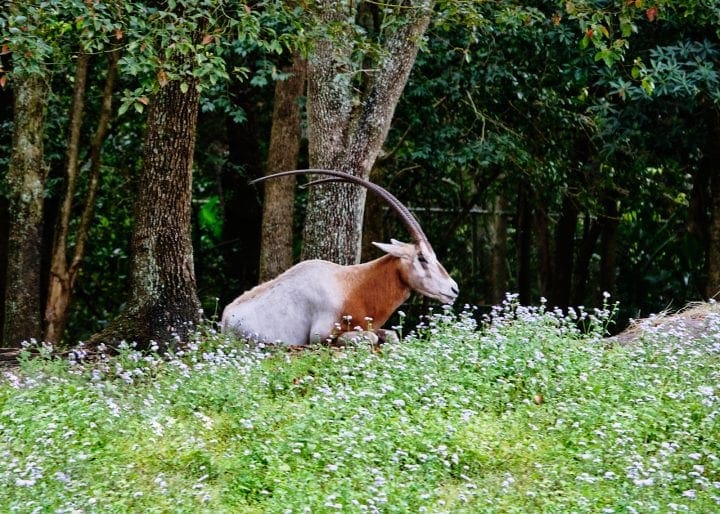
Disney Kilimanjaro Safari Guide
Full Manual is a Challenge
I also would not suggest shooting the trek in full manual mode. I mean, you can if you want to try it, but you will miss shots. The problem with the manual is time. Things happen fast on the safari; the light is constantly changing as you move through the various ecosystems of the Harambe Wildlife Reserve, and you never know when an animal will pop into view for just a few seconds. You may find yourself adjusting for light when something cool happens; It depends on how fast you are at making quick manual adjustments on the fly.
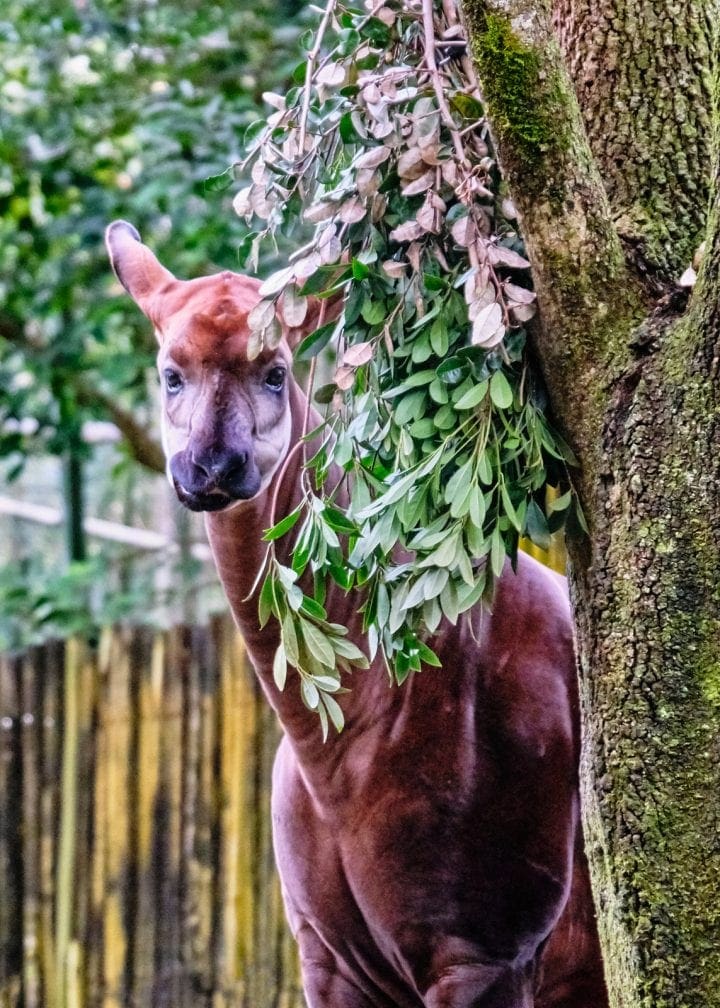
Shutter Priority for the Win
Because of the changing light and bouncy ride, I suggest shooting with Shutter priority mode, or manual with auto iso enabled (this is how I shot). For all of the photos in this post I kept the shutter at around 1/400; aperture ranged from f/3.6 to f/6. Given that, and to give you an idea of how much the light changes, the iso in my shots ranged from 200 to 3200. That's a pretty big swing.
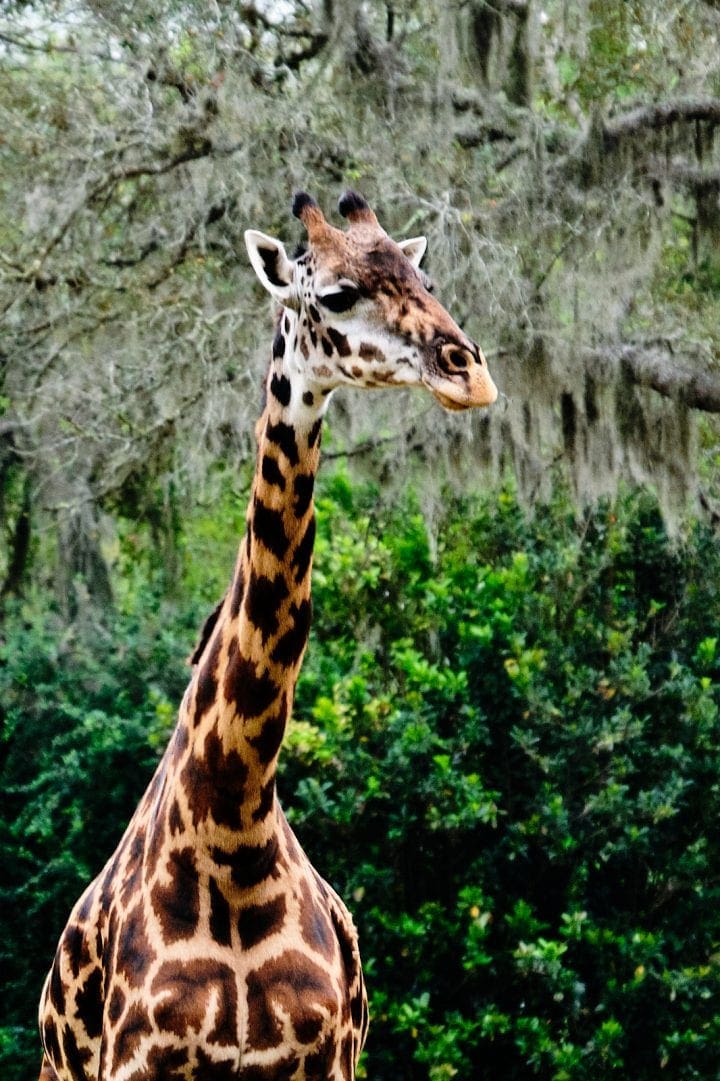
If you are planning on shooting an evening trek all of the advice above still stands for the most part. The truck will still be bouncing around and the animals will still be moving. The real challenge will be available light. For the evening safaris, you need to bring some fast telephoto glasses (f/1.8).
African Safari: Neutral Decorative Pieces from One Kings Lane
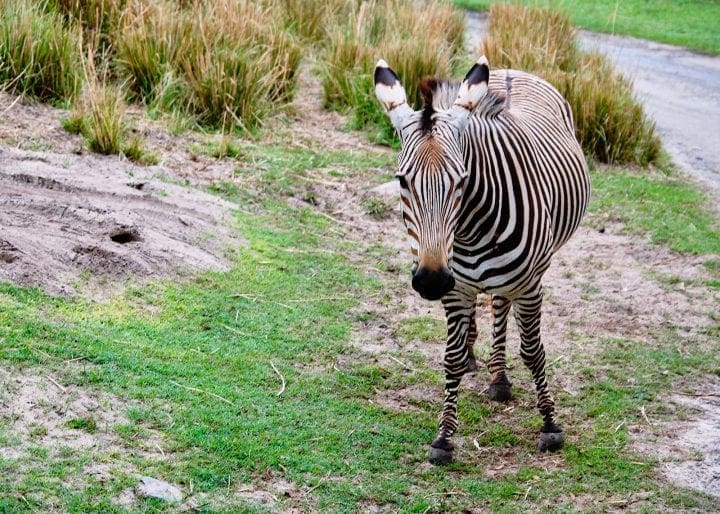
Disney Kilimanjaro Safari Guide
Consider Riding more than Once
My last tip for visiting the Kilimanjaro Safaris trek is to ride more than once if possible. The reason for this is simple; no two safaris are the same!
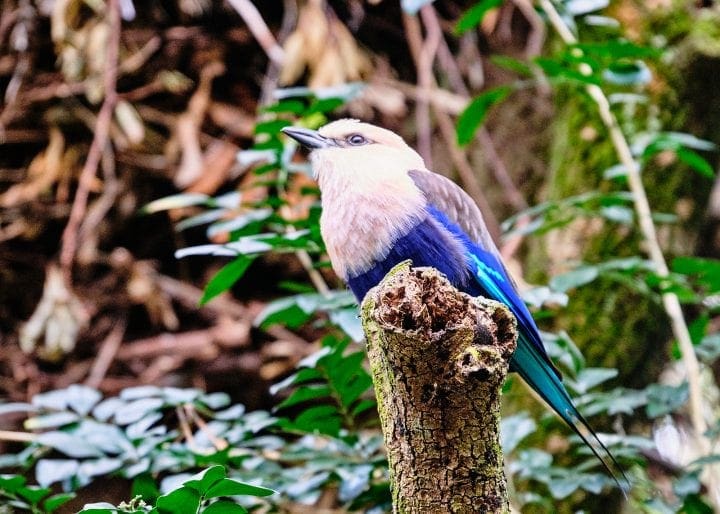
Different animals are active at different times of the day, and this makes each safari unique. So if you want to see all of the animals in their full glory, try to take both a morning and evening safari. The difference in the experiences is night and day.
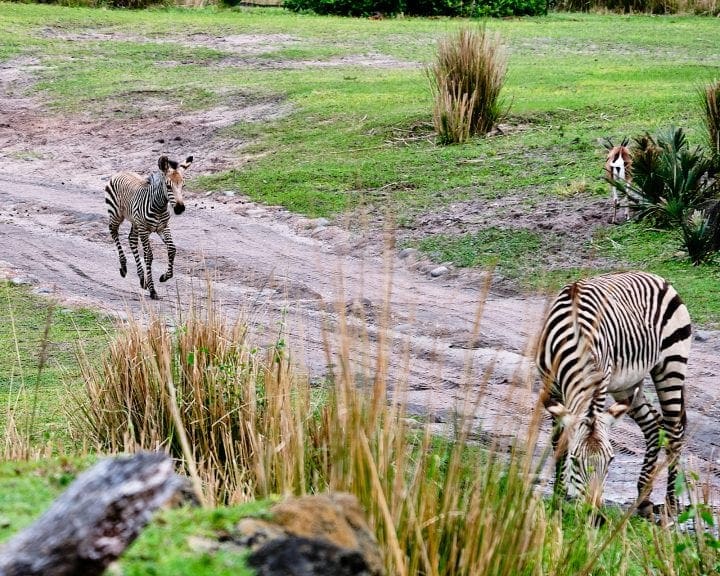
Also, try and sit on different sides of the truck if you take multiple safaris. The meandering path through the reserve puts different animals on the left and right sides of the vehicle, with more exhibits being on the left-hand side.
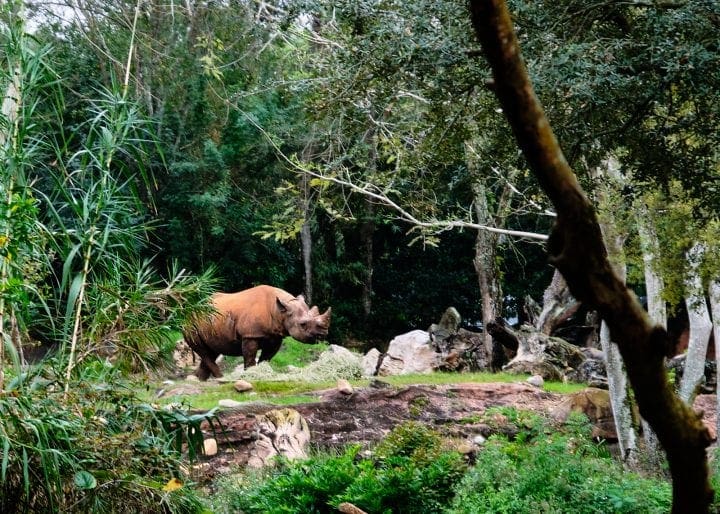
Learn More
Enjoy your trip to Disney's Animal Kingdom and the Kilimanjaro Safaris trek. While you are there, be sure to check out the other areas of the park as well. The world of Pandora is a must-see, and Asia is where you will find the very thrilling Expedition Everest steel roller coaster. If you enjoy adventure, the Everest Base Camp trek offers an unparalleled experience. Choosing the right trekking company for EBC or Kilimanjaro is essential; look for local operators with experienced guides, good reviews, and comprehensive support.
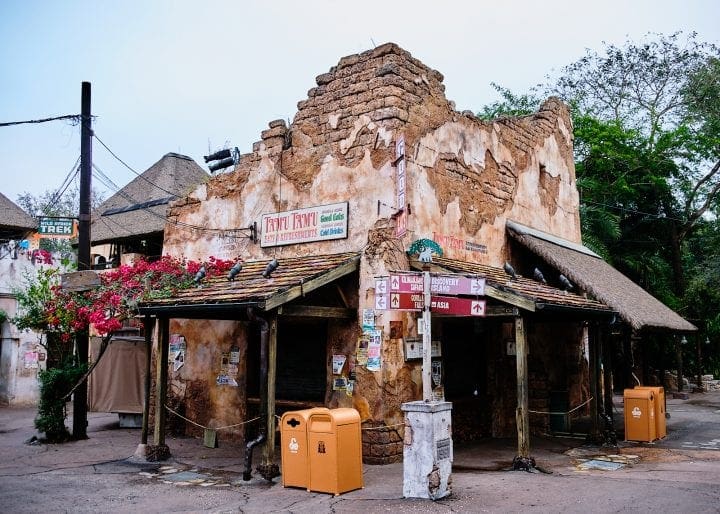
The Harambe village is a good place to pick up souvenirs, and the Yak & Yeti restaurant over in the Asia section of the park is a great place to eat; just remember to make a reservation.
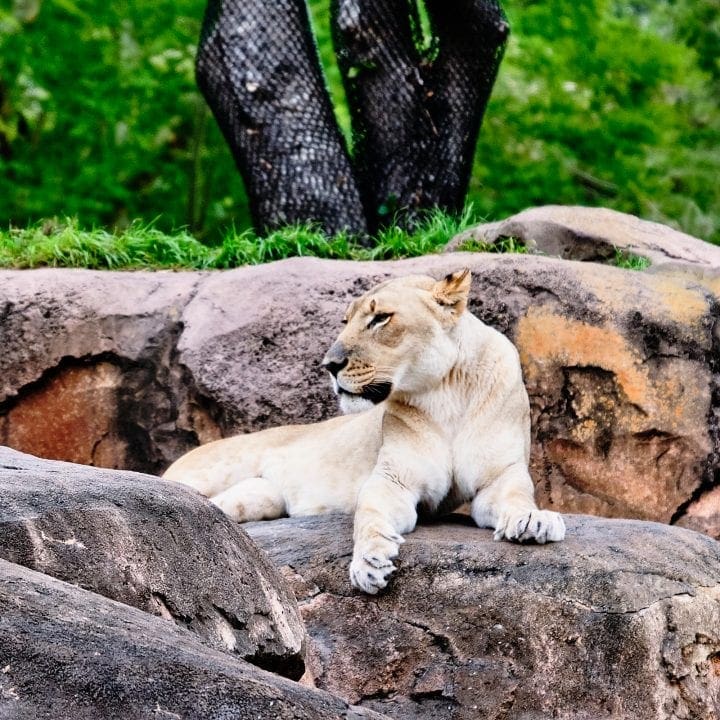
Disney Kilimanjaro Safari Guide
If you have more questions about Disney Kilimanjaro Safari, be sure to check out the Animal Kingdom website; it is chock full of useful information for your trip. If you have any questions at all about the safari or Animal Kingdom in general, leave a comment and we will be sure to answer And if you are looking for a fun and unique way to stay on property with Disney (giving you extra magic hours at the parks), check out our thoughts on the Fort Wilderness Resort.
Have fun on your adventure; we hope you have enjoyed this look at the Kilimanjaro Safaris Trek! Bookmark our Ultimate Guide to Kilimanjaro Safari Disney World. Happy travels!
The writer of this Ultimate Guide to Kilimanjaro Safari Disney World post was hosted by Disney. Lodging, food, and park tickets were provided for free or reduced charge. All words and opinions are my own.
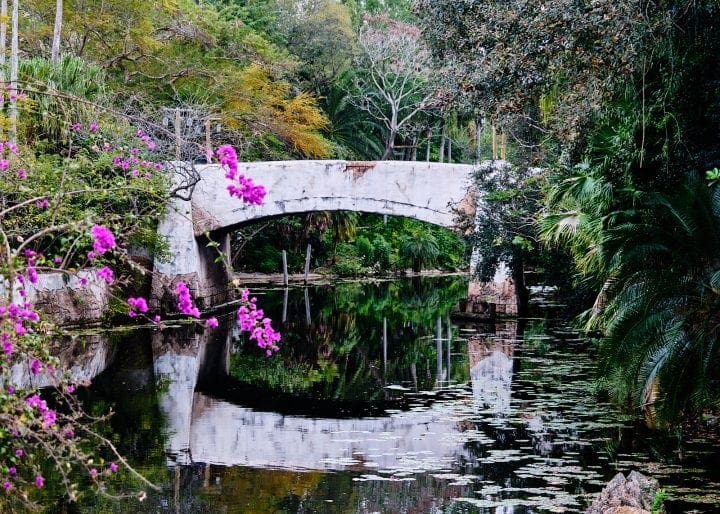
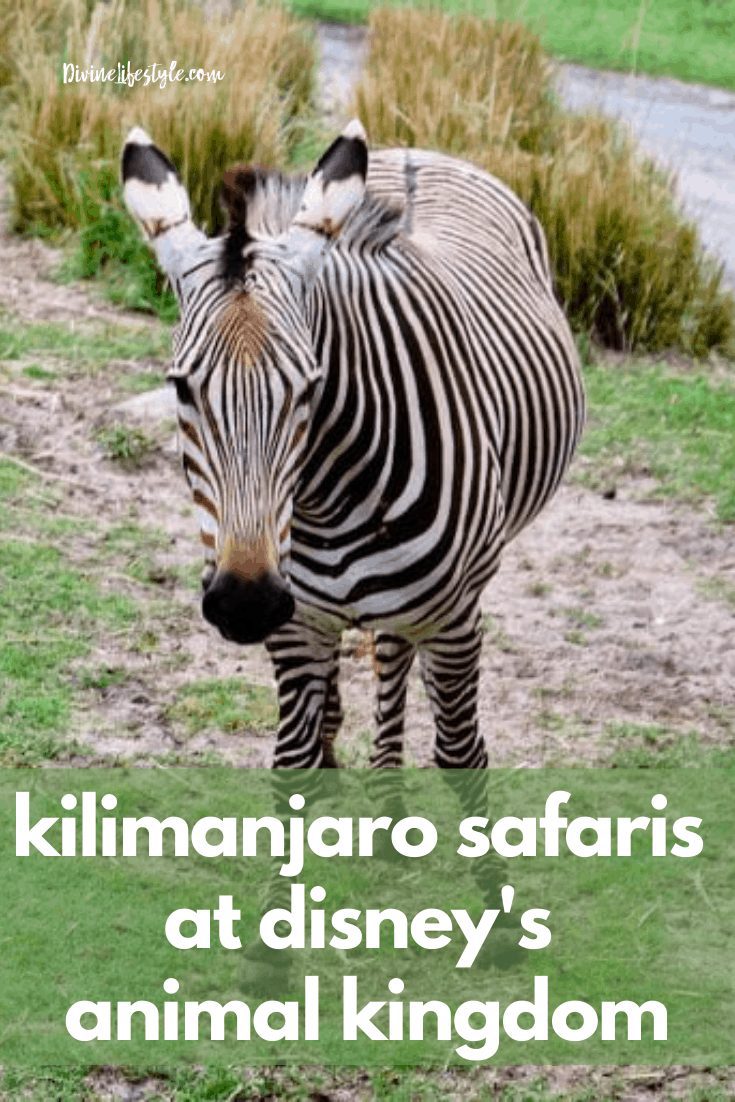
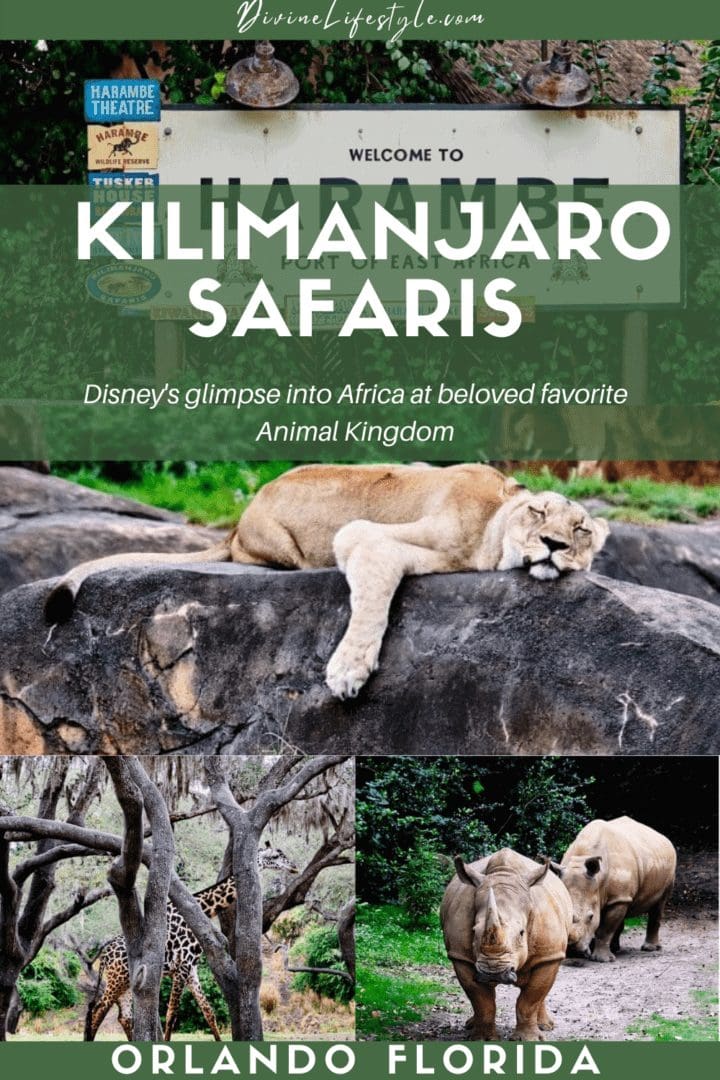























Pingback: Visiting Disney's Star Wars Galaxy's Edge: An Evening on Batuu
wow really like safaris in national parks and i have been visited to any national parks and want to explore almost places that i have been or going to visit there so i will add this place in my bucket so thanks for sharing information
Pingback: DIY Disney Dole Whip Dairy Free Recipe Divine Lifestyle
Pingback: Mom Tips for Disney World (From 24 Disney moms!) | Kin Unplugged
Pingback: 25 Mom Tips for Disney World (From 24 Disney moms!) | Kin Unplugged
Pingback: Disney Good Neighbor Hotels at Disney World: Disney VS. Non Disney
Pingback: Glamping: How to Discover France while enjoying Nature